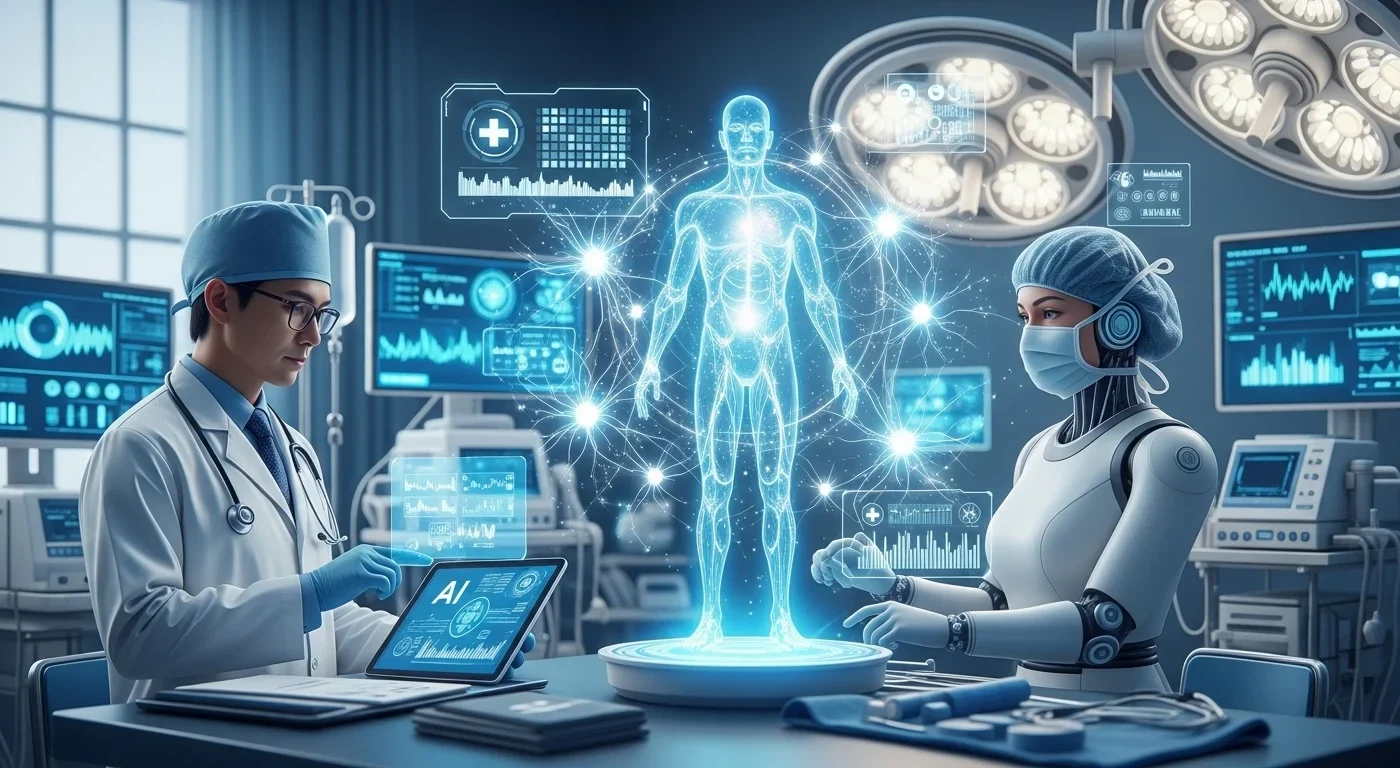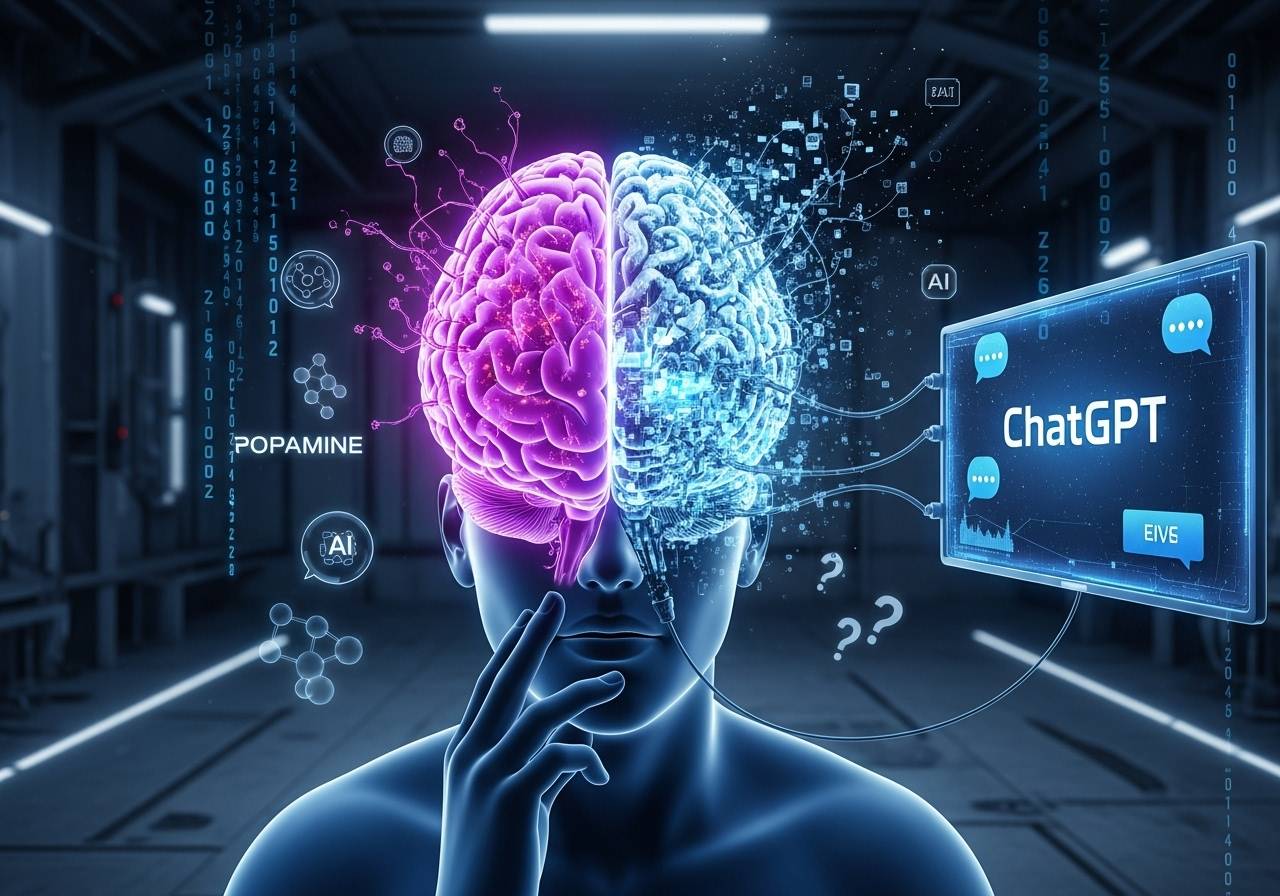Artificial Intelligence (AI) is reshaping industries worldwide, and healthcare stands out as one of the most promising beneficiaries. By leveraging advanced algorithms, machine learning, and data analytics, AI is poised to revolutionize patient care, diagnostics, drug development, and operational efficiencies. This article explores the transformative potential of AI in healthcare, delving into its applications, benefits, challenges, and future prospects.
Enhancing Diagnostic Accuracy
One of the most significant contributions of AI to healthcare is its ability to improve diagnostic accuracy. AI-powered tools, particularly those using deep learning, can analyze medical images such as X-rays, MRIs, and CT scans with remarkable precision. For instance, AI algorithms can detect abnormalities like tumors, fractures, or infections by identifying patterns in imaging data that might be too subtle for the human eye.
In oncology, AI systems have shown promise in detecting early-stage cancers. For example, studies have demonstrated that AI can identify breast cancer in mammograms with accuracy comparable to or surpassing that of experienced radiologists. By reducing false positives and negatives, AI helps ensure timely interventions, improving patient outcomes.
Beyond imaging, AI is enhancing diagnostics in areas like pathology and cardiology. Machine learning models can analyze tissue samples to detect diseases such as prostate cancer or predict cardiovascular risks by evaluating patient data like heart rate, blood pressure, and genetic markers. These capabilities allow for faster, more accurate diagnoses, enabling clinicians to focus on treatment rather than detection.
Personalized Medicine and Treatment Plans
AI is driving the shift toward personalized medicine, tailoring treatments to individual patients based on their unique genetic makeup, lifestyle, and medical history. By analyzing vast datasets, including genomic information and electronic health records (EHRs), AI can identify patterns that inform customized treatment plans.
For instance, in cancer treatment, AI algorithms can analyze a patient’s genetic profile to recommend targeted therapies that are more likely to succeed. This approach minimizes trial-and-error in treatment selection, reducing side effects and improving efficacy. Similarly, AI-driven predictive models can assess how patients with chronic conditions like diabetes or hypertension will respond to specific medications, optimizing therapeutic outcomes.
Wearable devices and health apps powered by AI further support personalized care. These tools monitor real-time data such as heart rate, glucose levels, or sleep patterns, providing actionable insights to patients and healthcare providers. By integrating this data with EHRs, AI can offer continuous, personalized health recommendations, empowering patients to manage their conditions proactively.
Streamlining Drug Discovery and Development
The traditional drug discovery process is time-consuming and costly, often taking over a decade and billions of dollars to bring a new drug to market. AI is streamlining this process by accelerating drug discovery, optimizing clinical trials, and reducing costs.
AI algorithms can analyze vast chemical libraries to identify potential drug compounds, predicting their efficacy and safety before they enter the lab. For example, AI models can simulate how a molecule interacts with a target protein, identifying promising candidates for further testing. This approach was notably used during the COVID-19 pandemic to identify potential treatments and vaccines at unprecedented speeds.
In clinical trials, AI enhances efficiency by identifying suitable participants based on genetic, demographic, and clinical data. It can also monitor trial progress in real-time, detecting adverse effects or inefficacies early, thus reducing the risk of trial failures. By optimizing these processes, AI not only accelerates drug development but also makes it more cost-effective, enabling faster delivery of life-saving treatments.
Improving Operational Efficiency
AI is transforming healthcare operations by automating administrative tasks, optimizing resource allocation, and enhancing workflow efficiency. Hospitals and clinics generate massive amounts of data daily, from patient records to billing information. AI-powered systems can automate tasks like medical coding, appointment scheduling, and claims processing, freeing up healthcare professionals to focus on patient care.
Predictive analytics, a subset of AI, is being used to optimize hospital operations. For example, AI can forecast patient admission rates, enabling hospitals to allocate staff and resources effectively. During peak times, such as flu season, these predictions help prevent overcrowding and ensure timely care. AI also aids in supply chain management by predicting demand for medical supplies, reducing waste, and ensuring availability.
Chatbots and virtual assistants powered by AI are improving patient engagement by handling routine inquiries, scheduling appointments, and providing medication reminders. These tools enhance accessibility, particularly for patients in remote or underserved areas, while reducing the burden on healthcare staff.
Advancing Predictive and Preventive Care
AI’s ability to analyze large datasets enables predictive and preventive care, shifting the focus from treatment to early intervention. By identifying risk factors and patterns in patient data, AI can predict the likelihood of diseases before symptoms appear. For instance, machine learning models can analyze EHRs to identify patients at risk of developing conditions like Alzheimer’s, heart disease, or kidney failure.
In public health, AI is used to monitor and predict disease outbreaks. By analyzing data from sources like social media, search engines, and health reports, AI can detect early signs of epidemics, enabling rapid response. During the COVID-19 pandemic, AI models helped track the virus’s spread, predict hotspots, and guide resource allocation.
Preventive care is further enhanced by AI-driven lifestyle interventions. Apps and wearables use AI to provide personalized recommendations for diet, exercise, and mental health, helping individuals reduce their risk of chronic diseases. These tools empower patients to take control of their health, reducing the overall burden on healthcare systems.
Enhancing Mental Health Support
Mental health is another area where AI is making a significant impact. AI-powered chatbots and virtual therapists provide accessible, 24/7 support for individuals experiencing anxiety, depression, or other mental health challenges. These tools use natural language processing (NLP) to engage in conversations, offer coping strategies, and provide emotional support.
AI also aids clinicians by analyzing patient data to assess mental health conditions. For example, machine learning models can analyze speech patterns, facial expressions, or social media activity to detect signs of depression or suicidal ideation. By identifying at-risk individuals early, AI enables timely interventions, potentially saving lives.
Addressing Healthcare Disparities
AI has the potential to address healthcare disparities by improving access to care in underserved regions. Telemedicine platforms powered by AI can connect patients in remote areas with specialists, providing high-quality care without the need for travel. AI-driven diagnostic tools can also be deployed in low-resource settings, enabling early detection of diseases where medical expertise is scarce.
Language barriers, a common obstacle in healthcare, are being addressed through AI-powered translation tools. These tools enable real-time communication between patients and providers, ensuring accurate diagnoses and treatment plans. By making healthcare more accessible and equitable, AI can help bridge gaps in global health outcomes.
Ethical and Practical Challenges
Despite its promise, AI in healthcare faces several challenges. Data privacy is a major concern, as AI relies on sensitive patient information. Ensuring compliance with regulations like HIPAA (in the U.S.) and GDPR (in Europe) is critical to maintaining trust. Robust cybersecurity measures are also essential to protect against data breaches.
Bias in AI algorithms is another challenge. If training data is not diverse, AI systems may produce biased outcomes, disproportionately affecting certain populations. For example, an AI model trained on data from a specific demographic may be less accurate for others, exacerbating health disparities. Addressing bias requires diverse datasets and rigorous testing to ensure fairness.
The integration of AI into clinical workflows also raises concerns about over-reliance on technology. While AI can enhance decision-making, it should not replace human judgment. Clinicians must be trained to use AI tools effectively, interpreting their outputs while maintaining a patient-centered approach.
The Future of AI in Healthcare
The future of AI in healthcare is bright, with ongoing advancements promising even greater impact. Emerging technologies like generative AI could enable the creation of synthetic medical data for research, addressing privacy concerns while accelerating innovation. Quantum computing, though still in its infancy, could further enhance AI’s ability to process complex datasets, revolutionizing drug discovery and diagnostics.
Collaborations between tech companies, healthcare providers, and regulators will be crucial to realizing AI’s full potential. Investments in AI infrastructure, such as cloud-based platforms and interoperable EHR systems, will enable seamless data sharing and scalability. Additionally, fostering trust through transparent AI development and ethical guidelines will ensure widespread adoption.
Conclusion
AI is transforming the healthcare industry by enhancing diagnostics, personalizing treatments, streamlining drug development, and improving operational efficiency. Its ability to predict and prevent diseases, support mental health, and address disparities holds immense promise for improving global health outcomes. However, challenges like data privacy, bias, and integration must be addressed to ensure equitable and ethical use.
As AI technology continues to evolve, its integration into healthcare will likely become more seamless, empowering providers and patients alike. By harnessing the power of AI, the healthcare industry can move toward a future where care is more precise, accessible, and effective, ultimately improving lives worldwide.
Must Read: GPT-5 Is Coming in July 2025 — And Everything Will Change




